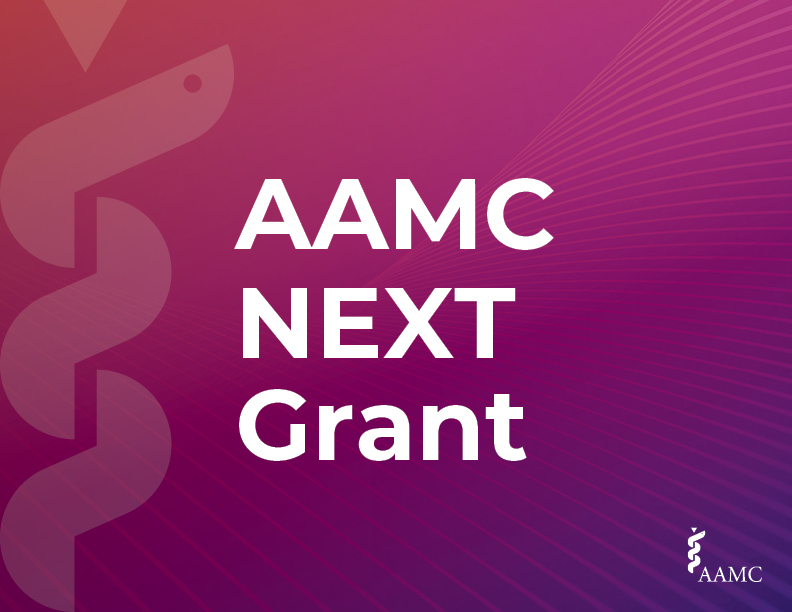
The AAMC NEXT Grant provides funding to institutions to develop or enhance a learning opportunity for medical students, residents, and other interprofessional learners that seeks to improve community health and eliminate health disparities with community partners.
For more information, please email AdvancingEquity@aamc.org.
Current Grantees
2023-2025
This funding cycle supports initiatives designed to address racism and improve health outcomes through community-academic partnerships.
Albert Einstein College of Medicine
Community Partner: Take Back the Bronx

Project Title: Anti-Racism Community Collaborative in Healthcare (ARCCH)
Community Need(s): This project aims to address racism in policies, procedures, and practices by building channels of communication, education, accountability, and service between the institution and the community. .
Project Description: ARCCH is a multilevel, longitudinal project consisting of five Community Conversations that serve to build trust, exchange information, and promote partnerships in advocacy between health care providers, patients, and the community. Overall, the conversations will promote shared decision-making between health care workers and the Bronx community.
University of California, Riverside School of Medicine
Community Partner: Advocate for Nurturing Transition (ANT) Consulting

Project Title: A Communities of Practice Approach to Cultivating Patient Self-Advocacy in Underserved Communities
Community Need(s): For Black patients in Southern California’s underserved Inland Empire (IE) region, self-advocacy skills are a vital means to achieve patient-centered care, as these skills enhance health care outcomes, empower patients, enable informed decision-making, help patients navigate the health care system, and address health care disparities. Learning to advocate for themselves enables patients to achieve better symptom management, overall health, increased confidence, and satisfaction with health care services.
Project Description: This project will use the Communities of Practice (CP) model to cultivate self-advocacy skills within participants drawn from IE’s Black community. CPs have the potential to play a critical role in supporting the development of self-advocacy skills by fostering shared learning, support networks, mentoring relationships, skills-building opportunities, and a culturally sensitive approach. CPs, or “Circles,” as they are called in this project, create spaces where individuals can share experiences, knowledge, and resources, and enable the development of a support network that encourages active participation and mentoring relationships.
University of North Carolina at Chapel Hill
Community Partner: Birth Sisters Doula

Project Title: Nurturing Empathy Among Obstetric Learners: Enhancement of an anti-racist resident curriculum through community-partnered story sharing
Community Need(s): Impacting the way obstetric residents see, hear, and demonstrate the value of patients is an immense opportunity to improve the delivery of pregnancy-related health care.
Project Description: In this two-year project, a multidisciplinary team, co-led by a doula, will remediate disparities in obstetric care through collaborative, community-partnered enhancement of the University of North Carolina Department of Obstetrics & Gynecology residency curriculum. The team will determine the feasibility, acceptability, and efficacy of integrating patient-informed racial justice content into resident training through a series of multidisciplinary didactics paired with facilitated reflection and discussion, and codevelopment of digital stories that reflect both community and learner perspectives.
Western Michigan University Homer Stryker M.D. School of Medicine (WMed)
Community Partner: ERACCE: Eliminating Racism and Creating/Celebrating Equity

Project Title: Facing Racism as a Part of Medical Education (FRAME)
Community Need(s): The project intends to improve medical students’ ability to understand and address the effects of racism as a social driver of health while engaging them in service-learning and other activities.
Project Description: The FRAME Project aims to enhance WMed’s long-standing experiential community-based learning opportunities to address racism and improve health outcomes as part of their integrated medical school core curriculum and experiences. The FRAME Project will also provide students with meaningful experiences in organizing, implementing, and assessing ‘systems-change’ and ‘systems-navigation’ projects.
Yale School of Medicine
Community Partner: Women Against Mass Incarceration (WAMI)

Project Title: The DEPART Initiative: DEtained Patients’ Advocacy and Rights throughout Treatment
Community Need(s): New Haven County, Connecticut, is the state’s third most populous county, yet it has Connecticut’s highest incarceration rate, especially among Black and Latino communities. Yale New Haven Hospital (YNHH) is the only health system in the city, making it the only health system where people receive care. Thus, the grant’s proposed partnership with WAMI is critically important, given the enduring disconnect between university and hospital systems and the needs of local Black and Latino communities impacted by mass incarceration.
Project Description: This project is partnering with WAMI, a community organization dedicated to advocacy against carceral discrimination, to produce an interdisciplinary curriculum and clinical care pathway, including a Patient Bill of Rights, to minimize police involvement for hospitalized people who are accompanied by law enforcement.
Previous Awardees
2020
This cycle funded projects that sought to address the impacts of COVID-19, racism, or both on communities.
George Washington University School of Medicine and Health Sciences (GW SMHS)
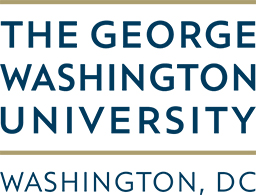
Project Title: GW SMHS COVID-19 Community Service Learning Project
Community Need(s): Address the disparity in the accessibility of PCR testing as well as accurate health information for populations most vulnerable to COVID-19 in Washington, D.C.
Project Description: GW SMHS expanded its COVID-19 testing and support services in partnership with Bread for the City, a community-based nonprofit that operates a federally qualified health center in Northwest D.C. Medical students and residents further developed and managed DC COVID Connect, an open-access, up-to-date, peer-reviewed online information resource, and participated in training and volunteer activities to increase access to low barrier COVID-19 testing in D.C. and address other health care and social service access barriers.
Key Project Highlights:
- Promoted learning and professional development of medical students and residents by building interpersonal, communication, and program management skills while strengthening their cultural sensitivity.
- Supported public health measures to mitigate the spread of COVID-19 in the local D.C. population.
- Expanded the DC COVID Connect website, which provided D.C. residents with a comprehensive list of available health care and social services as well as information about COVID-19.
- Created teaching resources to equip student volunteers with the knowledge and skills needed to address the impacts of racism through community service.
Additional Resources:
- Medical students create guide to navigate pandemic
- SMHS Students Create Guide to Connect D.C. Community to Accurate COVID-19 Information
University of Miami (UM) Leonard M. Miller School of Medicine

Project Title: COVID-19: Evaluating Fault Lines in the Health of Our Communities and Developing Community-Centered Solutions
Community Need(s): Identify, document, and respond to disparities exacerbated by COVID-19 in the West Grove community of Miami.
Project Description: TThis project was a collaboration between the UM Miller School of Medicine, the UM School of Law Center for Ethics and Public Service, Grove Rights and Community Equity Inc., and Coconut Grove Ministerial Alliance Inc. to train learners to identify and develop data-driven solutions and policies that address the long-term impact of COVID-19 on the mental, financial, and physical health of residents in the West Grove community of Miami.
Key Project Highlights:
- Medical, law, and public health students trained to be future leaders and agents of change by working with the community to identify health care needs and risk factors, and to find solutions to improve health outcomes and social determinants of health.
- Students gained community engagement skills, techniques for community needs assessments, and data visualization and analysis skills.
- The connections fostered by the award formed a basis for creating a partnership with federally qualified health centers (FQHCs) in the area and has launched a project that establishes infrastructure for the creation of a social determinants of health clinic in one of the partnering FQHCs.
Additional Resources:
University of New Mexico Health Sciences Center (UNM HSC)
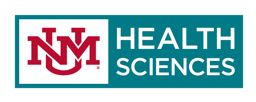
Project Title: Tools for Community Empowerment and Social Change
Community Need(s): Increase vaccine uptake among marginalized communities, such as commercial sex workers and those experiencing housing insecurity, as those populations are more vulnerable to COVID-19.
Project Description: UNM HSC adapted and piloted the pre-existing Tools for Community Empowerment and Social Change community-based participatory research curriculum to a COVID-19 context, engaging medical students and family and community medicine residents. Learners participated in an experiential learning opportunity that addressed COVID-19 inequities and access to care for people experiencing homelessness, through a partnership with the Corona Crushers, a multisector group with members from academia, government, health care, and the community.
Key Project Highlights:
- ollaborated with local community health councils and organizations such as New Mexico’s Department of Health to improve access to vaccines.
- Guided students in the recognition that they have a shared role with community members and leaders as change agents through their work with eight community populations.
- Developed critical reasoning skills among learners, to guide their capacity to search, analyze, and use data for decision-making, program management, and research that addresses community priorities.
- Student recommendations resulted in the New Mexico Department of Health Mobile Vaccination Teams meeting community members where they are to administer COVID-19 vaccines.
- Developed a working guide, “A Playbook for Integrating Multidisciplinary Teams in Community Equity Work,” to assist with implementing a curriculum for medical students and residents that ensures all communities have a fair and just opportunity to attain optimal health.
Additional Resources:
University of Texas Rio Grande Valley School of Medicine (UTRGV SOM)

Project Title: Learners Engaging with Hispanic Communities to Address COVID-19 Inequities - ¡Si se puede!
Community Need(s): Address issues related to underlying mistrust, racism in policies, procedures, and practices, and COVID-19 disparities in south Texas.
Project Description: Medical students, master of social work students, and resident physicians at UTRGV SOM, a Hispanic-serving Institution, partnered with El Milagro Clinic and the Hope Family Health Center to develop a guide to culturally informed public health messaging and to execute “¡Si se puede!,” — an interdisciplinary public health education campaign to address COVID-19 disparities, racism in policies, procedures, and practices, and mistrust of health systems in south Texas.
Key Project Highlights:
- Connected Spanish speakers with culturally informed public health messaging on COVID-19.
- Learners gained interdisciplinary leadership and communication skills in a learner-led, community-engaged public health messaging campaign.
- Developed, implemented, and distributed three novel guides to being culturally informed when interacting with multiple audiences: one designated for general use, one for Hispanic communities, and one for hard of hearing communities.
- Provided 360 total influenza vaccines to those in need.
Additional Resources:
Wayne State University School of Medicine

Project Title: Healing Between the Lines
Community Need(s): Develop partnerships with community-based organizations to address racism in policies, procedures, and practices, and improve health outcomes in Detroit.
Project Description: Healing Between the Lines (HBL) sought to enhance the Health Equity and Justice in Medicine (HEJiM) longitudinal curriculum that currently trains Wayne State University School of Medicine and Detroit Medical Center residents on social determinants of health, advocacy, and cultural sensitivity. HBL’s sub-curriculum expanded HEJiM to include medical students and educate learners along the medical education continuum about the historical intersection of racism in all its forms and health by exploring and untangling the impact of redlining on the health outcomes of Detroit Black, Indigenous, and People of Color (BIPOC) communities. Students and residents learned how to effectively and sustainably collaborate with Detroit BIPOC communities to advocate for health justice.
Key Project Highlights:
- Established Justice Circles, a monthly forum between community organizations and learners, that created deeper relationships between the emerging medical workforce and the communities they serve.
- Organized a virtual symposium with learners and partner organizations to discuss community challenges and solutionsfor improved health outcomes in Detroit.
- Educated medical students and residents on the historical intersection of racism and health by analyzing the impact of redlining on the health outcomes of Detroit’s communities.
- Increased learner competency in collaborative policy development and legislative advocacy.
Additional Resources:
-
The deadly legacy of redlining — and a mission to reverse it
- School wins $10,000 from AAMC to develop ‘Healing Between the Lines’ sub-curriculum
2019
Keck School of Medicine of the University of Southern California
Project Title: Trojan Trainer Patient Navigator Program
Community Need(s): Increase access to health care, improve health outcomes, and reduce disparities for individuals experiencing homelessness in Los Angeles.
Project Description: The Trojan Trainer (TT) patient navigator program invited medical and physician assistant students to collaborate with Keck School of Medicine (KSOM) Street Medicine, University of Southern California (USC) health system leadership, and community partners to address medical and psychosocial needs by bringing care directly to patients experiencing homelessness. The program centered the patient by establishing them as the trainers, recognizing their critical role as educators in medical training.
Key Project Highlights:
- Learners in the TT program served as extensions of the KSOM Street Medicine Team, bringing trainers’ needs to their interprofessional health care providers.
- Learners had increased opportunities to advocate on behalf of their trainer and help identify appropriate services and resources.
- Learners received in-depth training on psychosocial and wellness challenges affecting individuals experiencing homelessness in Los Angeles County; on safety measures, strategies, and tools of motivational interviewing and trauma-informed care; and on history-taking and street psychiatry while performing street medicine.
- The TT program expanded from four learner teams to nine, going from 25 to more than 50 medical and physician assistant learners participating.
Additional Resources:
- Street Medicine: Caring for the Homeless with Radical Humility | Brett Feldman | TEDxGrandPark
- We Can't Let Homeless People Die: USC Street Medicine on Skid Row
Northwell Health
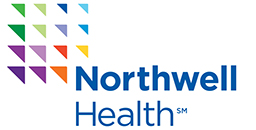
Project Title: ENHANCE (Engaging in Health Advocacy through Neighborhood Collaboratives and Education)
Community Need(s): Develop and sustain meaningful partnerships with community-based organizations to address primary care and health education gaps.
Project Description: The Engaging in Health Advocacy through Neighborhood Collaboratives and Education (ENHANCE) community health track provided internal medicine, pediatric, and family medicine residents and nurse practitioner students with the opportunity to develop interprofessional community-based projects that assessed the impact of the social determinants of health on primary care outcomes.
Key Project Highlights:
- Collaborated with community-based organization (CBO) sites to conduct community needs assessments and relevant community-based projects to address needs (e.g., nutrition and parent education on common pediatric topics).
- Provided resident training on the principles and evaluation methodologies for community-based participatory research.
- Established ongoing relationships with CBOs that were pivotal in transitioning to virtual monthly sessions due to the COVID-19 pandemic and supporting response activities (e.g., a virtual town hall series on COVID and vaccines).
University of Iowa Roy J. and Lucille A. Carver College of Medicine
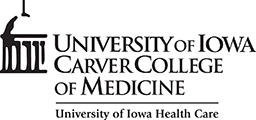
Project Title: Working with Interpreters as a Team in Healthcare (WITH Care)
Community Need(s): Improve limited English proficient (LEP) patient care experiences with health care providers and professional health care interpreters to reduce communication-related adverse events.
Project Description: The Working with Interpreters as a Team in Healthcare (WITH Care) simulation curriculumsought to improve the population health leadership skills of medical students and trainees through the integration of a validated interprofessional collaborative practice curriculum into the establishment of a new immigrant-refugee clinic.
Key Project Highlights:
- Increased learner knowledge about the experience of LEP patients and professional health care interpreters and how to collaborate effectively with professional health care interpreters.
- Converted WITH CARE workshop training curriculum to a family medicine context for delivery in a virtual format that allows for future expansion to more learners.
- Customized simulation cases to the authentic experience of LEP residents in Iowa that focused on the areas in which they may work (e.g., agriculture, food service/production, and meat packing) and included mental health education associated with the COVID-19 pandemic.
- Enhanced collaborative relationships with hospital interpreters who speak Mandarin, Cantonese, and Spanish, to identify and address health care challenges at the interpersonal and system levels, to improve health care delivery experiences.
Additional Resources:
University of South Carolina School of Medicine Greenville
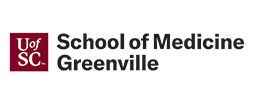
Project Title: ROOT CAUSE: Advancing Community Health and Active Citizenship
Community Need(s): Increase access to health services in the Dunean community.
Project Description: ROOT CAUSE: Advancing Community Health and Active Citizenship is a monthly health and public services fair that aims to address the root causes of disease by increasing access to health care and promoting healthy lifestyle choices while simultaneously affecting students’ and residents’ perceptions of empathy and burnout.
Key Project Highlights:
- Increased health education on topics such as healthy eating, gun safety, and addiction recovery and on access to health care through monthly service fairs with 45 community partners.
- Collaborated with community partner organizations to assemble and distribute health kits and health care resources to community members at multiple family practice locations to support local COVID-19 response efforts.
- Increased community cohesion and networking through new relationships as part of monthly fairs and COVID-19 response (e.g., student-student, student-community partner, community partner-community, community-community, community partner-community partner).
- Emphasized active citizenship by broadening student engagement with the community.
- Presented posters at the 2020 and 2021 Society of Teachers of Family Medicine (STFM) conferences and the 2020 South Carolina Upstate Research Symposium. Awarded the Blue Ribbon Award for Outstanding Poster at STFM 2021.
Additional Resources:
Weill Cornell Medicine
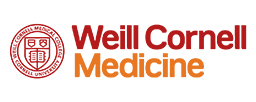
Project Title: Weill Cornell Medicine (WCM) Wellness Qlinic
Community Need(s): Address the existing mental health disparities seen in LGBTQ+ populations in New York City.
Project Description: The Weill Cornell Medicine Wellness Qlinic is a student-run, free mental health clinic training medical students, residents, and psychologists to treat lesbian, gay, bisexual, transgender, queer, and other sexual and gender identity (LGBTQ+) individuals and address mental health disparities seen in this population. The Wellness Qlinic program aims to improve the LGBTQ+ community’s access to culturally informed mental health care and provide academic opportunities for students and trainees to learn and study LGBTQ+-informed mental health.
Key Project Highlights:
- Established the WCM Wellness Qlinic and converted all workflows and services to virtual and telehealth platforms during the COVID-19 pandemic.
- Expanded LGBTQ+ education for students and residents through development of virtual modules, academic projects, and training for a 12-week Dialectical Behavior Therapy (DBT) skills-based group-therapy module.
- Transitioned psychiatry residents’ participation in the WCM Qlinic from a volunteer activity to a universal rotation for all PGY-2 residents during the 2020-21 academic year.
- Created a medication reimbursement program to offset the cost of medications for patients and provided access to an online mental and emotional well-being tool.
- Partnered with the National Alliance on Mental Illness (NAMI) NYC to cosponsor eight sessions of NAMI Peer-to-Peer for LGBTQ.
Additional Resources:
- Safe Space: New student-run clinic offers free mental healthcare to New York’s LGBTQ community
- How Microaggressions Affect the LGBTQ+ Community
The 2019 and 2020 cycles of the AAMC NEXT Grant were supported by Cooperative Agreement Number 5 NU36OE000007 from the Centers for Disease Control and Prevention.